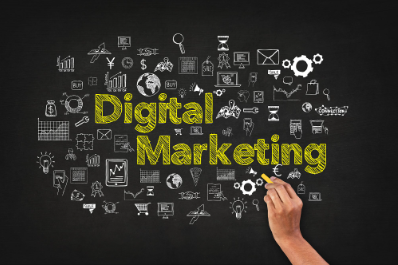The world of product marketing is evolving rapidly, driven by technological advancements and changing consumer behaviors. Leading companies are at the forefront of this transformation, implementing innovative strategies to stay ahead. This article delves into the future of prodct marketing, highlighting key innovations from top industry players.
Data-Driven Personalization
Personalization has become a cornerstone of effective product marketing. Companies are leveraging vast amounts of data to tailor their marketing efforts to individual consumer preferences.
- Customer Data Platforms (CDPs): These platforms aggregate and organize customer data from various sources, providing a unified view of each customer. Companies like Salesforce and Adobe are leading in this space, enabling marketers to create highly personalized campaigns.
- Predictive Analytics: By analyzing past behaviors and preferences, companies can predict future actions and tailor their marketing strategies accordingly. Amazon uses predictive analytics to recommend products to users, significantly boosting conversion rates.
Artificial Intelligence and Machine Learning
Artificial intelligence (AI) and machine learning (ML) are revolutionizing product marketing by automating processes and providing deeper insights.
- Chatbots and Virtual Assistants: AI-powered chatbots, such as those used by Sephora and H&M, offer personalized shopping experiences and instant customer support, enhancing user engagement and satisfaction.
- Content Generation: Tools like OpenAI’s GPT-3 are being used to create content, from product descriptions to marketing copy, reducing the time and cost associated with content creation while maintaining high quality.
Augmented Reality (AR) and Virtual Reality (VR)
AR and VR technologies are providing immersive experiences that help consumers make informed purchasing decisions.
- Virtual Try-Ons: Beauty brands like L’Oréal and furniture companies like IKEA are using AR to allow customers to virtually try on products or visualize furniture in their homes before making a purchase.
- Immersive Experiences: Companies like Nike are creating VR experiences that immerse customers in the brand’s story and product line, fostering a deeper connection and engagement with the brand.
Omnichannel Marketing
In today’s connected world, consumers expect a seamless experience across all channels. Leading companies are adopting omnichannel marketing strategies to meet this demand.
- Integrated Campaigns: Brands like Coca-Cola and Starbucks are running integrated campaigns that provide a consistent message across online and offline channels, ensuring a cohesive customer experience.
- To enhance brand recognition and customer recall, companies are increasingly adopting custom vanity numbers, making it easier for consumers to connect with their services and products.
- Cross-Device Tracking: Technologies that track user interactions across multiple devices allow marketers to deliver targeted messages at the right time and place. Google and Facebook are pioneers in this space, offering robust cross-device tracking solutions.
Sustainable and Ethical Marketing
Consumers are increasingly concerned about the ethical and environmental impact of their purchases. Leading companies are responding by incorporating sustainability and ethics into their marketing strategies.
- Transparent Supply Chains: Brands like Patagonia and Everlane are providing transparency into their supply chains, building trust and loyalty with consumers who prioritize ethical consumption.
- Eco-Friendly Campaigns: Companies are highlighting their commitment to sustainability through marketing campaigns that emphasize eco-friendly practices and products. Unilever’s sustainable living brands, for example, are growing at a faster rate than the rest of its portfolio.
Influencer and Social Media Marketing
The rise of social media has transformed how brands interact with consumers, with influencer marketing playing a significant role.
- Micro-Influencers: Brands are increasingly collaborating with micro-influencers, who have smaller but highly engaged audiences. This approach, used by companies like Glossier and Daniel Wellington, often leads to higher engagement rates and more authentic connections with consumers.
- User-Generated Content: Encouraging customers to create and share content related to the brand can drive engagement and build community. Brands like GoPro and Apple have successfully leveraged user-generated content to enhance their marketing efforts.
Voice Search and Smart Speakers
The growing adoption of voice-activated devices is reshaping product marketing strategies.
- Voice-Optimized Content: Companies are optimizing their content for voice search to ensure they appear in voice search results. This includes using natural language and answering common questions succinctly. Domino’s Pizza, for example, allows customers to place orders via smart speakers like Amazon Echo.
- Voice-Activated Advertising: Brands are experimenting with voice-activated ads that engage users through smart speakers, creating new opportunities for interaction and conversion.
Conclusion
The future of product marketing is being shaped by innovative technologies and strategies that enhance personalization, engagement, and consumer trust. Leading companies are setting the pace by embracing data-driven personalization, AI and ML, AR and VR, omnichannel approaches, sustainable practices, influencer collaborations, and voice-activated marketing. As these trends continue to evolve, businesses that stay agile and adapt to these innovations will be well-positioned to thrive in the ever-changing marketing landscape.











